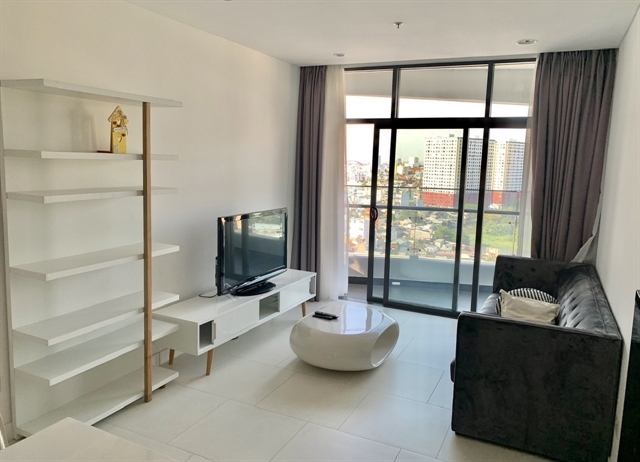
An Airbnb rental in Thạnh Mỹ Tây Ward in HCM City. City authorities has proposed a one-year pilot programme allowing short-term apartment rentals in apartments beginning September 1. Photo: VNS/Bồ Xuân Hiệp
HCM City’s Department of Construction has proposed a one-year pilot programme allowing short-term rentals in apartments starting September 1, in a bid to regulate the rapidly growing homestay market amid increasing demand from tourists and business travellers.
The proposal, submitted to the municipal People’s Committee, would apply only to units in apartment buildings that meet technical and safety standards, including fire prevention, waste management, elevators, and utilities, and that have been built in line with approved design documents.
To join the programme, apartment owners must secure approval from the building’s residents’ meeting, agree on any changes to management fees, and register the change in usage with local authorities, the management board, and the building’s operating unit.
Participants would also be required to report guest stays and comply with all regulations on tourism, residency, taxation, fire safety, and insurance.
Violators could face administrative penalties, with repeat offenders subject to suspension from the programme.
The proposal comes amid rising tensions between property owners who rely on short-term rentals for income and long-term residents concerned about the impact on security and quality of life.
“I invested in an apartment with the clear intention of using it for short-term rentals,” said Trần Quang Huy, a 35-year-old host managing three Airbnb units in Thạnh Mỹ Tây Ward.
“Many owners rely on this model to cover mortgage payments. A proper legal framework would benefit everyone.”
But others say the short-term model disrupts daily life.
“We constantly deal with strangers at all hours, tourists knocking on our doors, and trash in shared areas,” said Nguyễn Thị Điệp, 63, a resident of a high-rise in Tân Hưng Ward. “It no longer feels like home. It feels like a hotel.”
Currently, short-term rentals are prohibited under a city decision, which restricts apartments to residential use only. The ban has sparked growing frustration from hosts and investors, especially in areas frequented by international visitors.
Industry insiders say the proposed pilot is an important first step to address the regulatory gap. “There is clearly demand for short-term accommodation, but it must be managed responsibly,” said Lê Văn Kiên, deputy director of a real estate consultancy in the city.
“The key is balancing individual ownership rights with the community’s well-being. Transparency, proper registration, and enforcement will be crucial,” he said.
The Department of Construction said the pilot aims to lay the groundwork for future legal reforms.
Following the trial, city authorities will assess its impact and may propose amendments to national laws, including the Law on Housing and the Law on Tourism.
The city will also coordinate with the Department of Tourism, Police, and the Department of Science and Technology to develop implementation guidelines and evaluation criteria.
Meanwhile, the tourism department is drafting a strategy to manage sharing-economy accommodation models.
“This isn’t about banning or allowing, it’s about managing,” Kiên said. “If implemented well, this pilot could become a model for other cities facing similar challenges.”





Bạn không thể gửi bình luận liên tục. Xin hãy đợi
60 giây nữa.